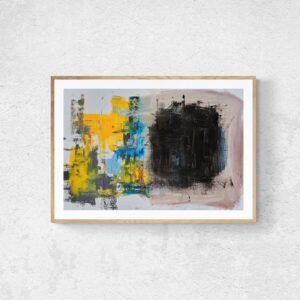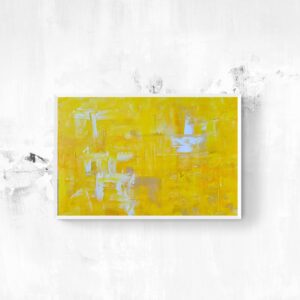
I started reading Italian novelist Vincenzo Latronico’s Perfection (2022) splayed out languidly on the beach. Then I was sitting up, nerves ablaze, and then on the train, the world outside whizzing past unnoticed, and then in bed that night, my Kindle having temporarily usurped my iPhone, and then it was over. I felt abuzz, delirious, called out. Reading Perfection is as uncanny and disturbing as looking at your doppelganger. I’m not a Southern European emigré to Berlin, like the main characters, Anna and Tom. But I am a part of the art world of New York, and their East Berlin reads a lot to me like my Brooklyn and Lower East Side. Because, as Latronico himself points out, their neighborhood could “just as well have been New York — or anywhere in the world, for that matter.”
Translated by Sophie Hughes and published in English earlier this year, Perfection is fundamentally about making meaning in a world where the real and digital, the local and global, have fused into one hybrid, monstrous, relentless thing. Latronico lampoons a specifically white-collar, self-styled cultural person with an art critic’s attention to detail, and perhaps the pettiness as well. Anna and Tom are graphic designers, and though they think of social media and the internet as a “constellation of distractions,” there is, in reality, no distinction between “the personal and the professional — between news stories and banter, project pitches and catchy pop hooks.” As the author puts it: “They would drift from one thing to the other, because one thing was the other.” But though Latronico delights in ridiculing his characters, he also recognizes them as hapless avatars of a globalized culture flattened by the internet. They live as though trapped in a screen, seemingly unable to really touch or taste the world as their lives unfold like the images they consume.
The Berlin art scene, as experienced by Anna and Tom, is as surface-level as those images. It’s just another part of their protracted going-out routine that begins on Saturday morning and runs into the following afternoon. “Table tennis in Arkonaplatz” or “bocce on Paul-Lincke-Ufer” blends easily with an “independent art space above a car wash in Friedrichshain,” a “basement gallery on Graefestraße.” Descriptions of these events will be familiar to anyone who frequents a gallery circuit anywhere in the world: little clusters of people huddled under the “neon glow” of a streetlamp, the “empties piled up around plastic beer crates on the pavement.” They have learned to “talk the talk,” Latronico writes, but they didn’t actually “get it.” They go to openings because art is the “pulse of their life in Berlin”; galleries, he writes, are both “a stage and a social hub.”
It’s not just the art world that’s been razed to the level of abstraction in Perfection. It’s literally everything. It’s sex: “One of them would read a piece by a New York journalist about how she’d taught her boyfriend to use a double strap-on and then send the affiliate link to the other over Slack.” It’s history: Living in East Berlin, Anna and Tom can vaguely connect “place names and crucial events from the previous century … but really their awareness didn’t exceed a few anecdotes rattled off to make it look like their life there had more substance.” It’s political engagement: the refugee crisis, with its “image[s] of migrants crammed into dinghies beside grey military patrol boats,” becomes just another part of the “information landscape,” along with the “dusty yellow photos of wars in the Middle East, or the red and cobalt blue of the smoke grenades at G8 protests.” Real life collapses into RGB pixels.
There’s one moment when it feels like Anna and Tom may have finally descended into the real stuff of life, spurred by a photo of a child refugee who drowned. Overnight, social media activism “trickled down to the real city.” The duo offers to typeset a German-Arabic phrasebook. They pick up “bags from architecture magazines” filled with donations. Their political engagement is, of course, inextricable from its performance via social media. While they volunteer for kitchen shifts, they post photos of the lunch queue or calls for volunteers, “watch the likes and shares go up,” and “feel sure they were doing the right thing.” Inevitably, the surface-level aesthetics of their own lives once again usurp the substance of the cause. Their last meeting at a gallery on Hobrechtstraße ends with a pledge to pick up again in two months, but it is “postponed until after Gallery Weekend, and then until after the Biennale, and by then it would be summer.”
Latronico can be excoriating, but I was struck repeatedly by the compassion with which he paints Anna and Tom. They try to be good, helping out in the ways they know how. It doesn’t contribute much, but they “would be the first to admit it.” They’re archetypes of a particularly annoying kind of person in a hyperconnected yet alienated world — one in which each decision is freighted with such an exponential web of factors that it feels stupefying, even impossible, to be good. In which one can say whatever one wants to whomever because they’re just a name on a screen, not a person. In which you can scroll past a flood of catastrophic images because what can you really do to help?
We all know an Anna and Tom. You’ve seen them at the gallery openings, on Instagram. In fact, there’s a good chance you are them. Part of the appeal of Perfection is in laughing at these people who are hapless and mediocre, even though most of us are, too — it’s just how the math works. Indeed, Latronico calls us out by calling Anna and Tom out: They understand gentrification, for instance, as “something other people did.” Even as we’re judging these shallow, image-obsessed characters, we’re consuming a book that is itself structured like an endless scroll of dopamine kicks, just like the stream of images that envelop Anna and Tom. The cadence is mesmerizing, the next phrase always surprising, the sounds of the words so satisfying to form in your mouth. Its intense economy holds you hooked, as does the visual culture it satirizes. The novel has worked on you the same way the digital feed does: image after image, and before you know it, a decade’s passed. Perfection likely wouldn’t land if you yourself weren’t steeped in the same or similar signifiers. Takes one to know one, right?
Perfection (2022) by Vicenzo Latronico, translated by Sophie Hughes, is published by New York Review Books and available for purchase online and in bookstores.





